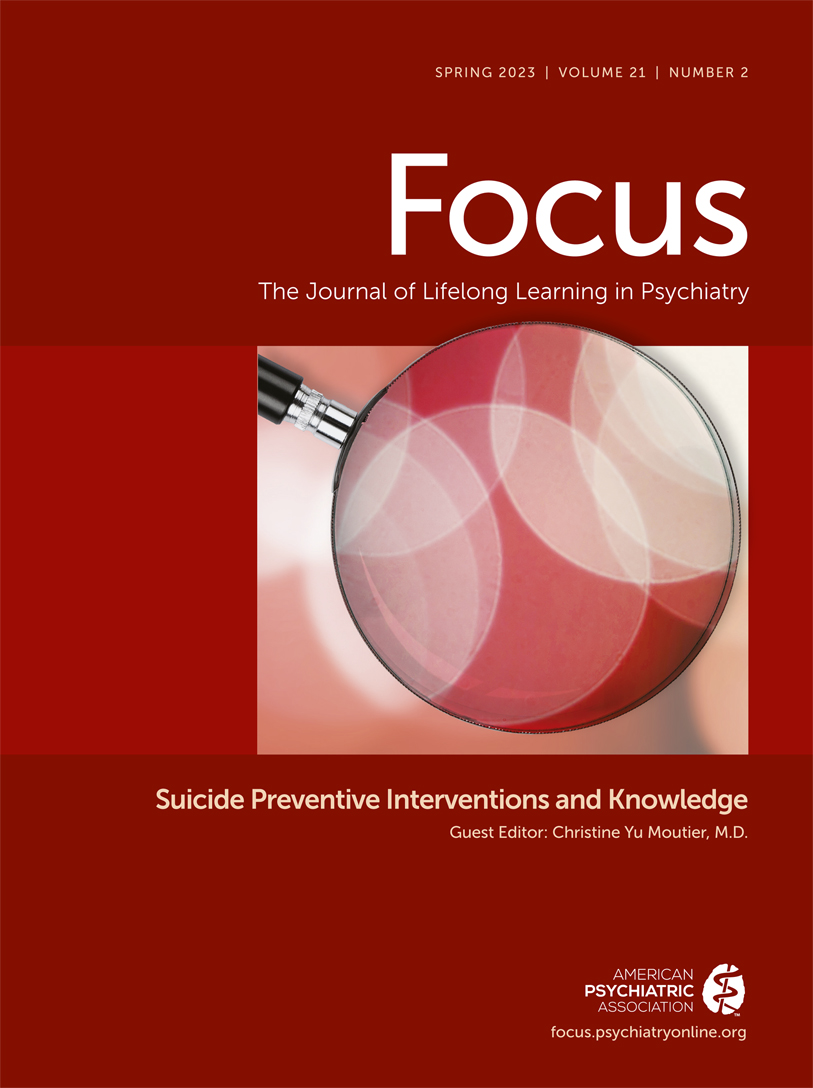Brief and Ultra-Brief Suicide-Specific Interventions
Abstract
The rising rates of suicide warrant effective treatments that can quickly help stabilize suicidal individuals and prevent future suicidal crises from occurring. Across the past few decades, there has been a rise in the development of ultra-brief (1–4 sessions) and brief suicide-specific interventions (6–12 sessions) to meet this need. This article reviews several prominent ultra-brief and brief interventions, including the Teachable Moment Brief Intervention, Attempted Suicide Short Intervention Program, Safety Planning Intervention, Crisis Response Planning, Cognitive Therapy for Suicide Prevention, Brief Cognitive-Behavioral Therapy for Suicide Prevention, Collaborative Assessment and Management of Suicidality, and the Coping Long-Term With Active Suicide Program. A brief review of each interventions’ evidence base is also provided. Current challenges and directions for future research in testing the efficacy and effectiveness of suicide prevention initiatives are discussed.



